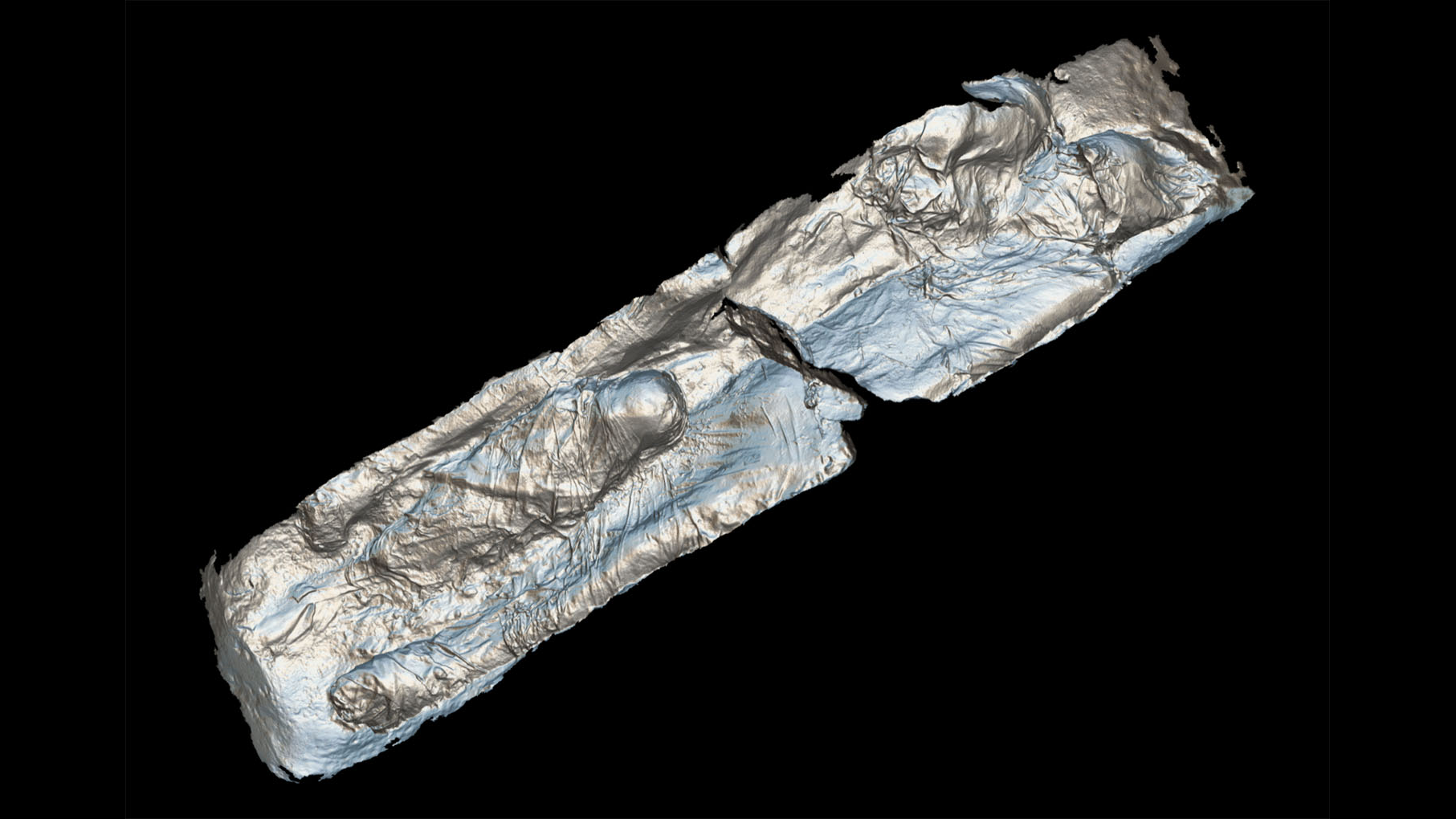
Get the world’s most fascinating discoveries delivered straight to your inbox.
You are now subscribed
Your newsletter sign-up was successful
Want to add more newsletters?
Join the club
Get full access to premium articles, exclusive features and a growing list of member rewards.
This article was originally published on The Conversation. The publication contributed this article to Live Science's Expert Voices: Op-Ed & Insights.
In an attempt to move away from the traditional language used to describe psychosis and schizophrenia, the British Psychological Society (BPS) has launched an update to its thinking on this issue.
The foreword of the report it has published sets out the vision:
We hope that in future, services will no longer insist that service users accept one particular view of their problem, namely the traditional view that they have an illness which needs to be treated primarily by medication.
The report comes at a pertinent time for mental health research; last year the same organisation questioned the value of psychiatric diagnosis altogether. This new document seems to cast doubt on many received wisdoms about schizophrenia, even questioning whether it is an illness. So what is happening here?
Radical shifts
Schizophrenia has been a controversial and shifting diagnosis since the word was coined by Eugen Bleuler in 1911. Its name has undergone quite radical changes in meaning, moving from being seen as a progressive brain disease, to being thought of as a series of “reactions” in the first DSM (the American manual of mental disorders) to increasingly being defined since the 1980s as a neuro-developmental disorder in psychiatric research.
In 1979, the trenchant critic of psychiatry Thomas Szasz called it “psychiatry’s sacred symbol” and wondered at length how psychiatry was able to get away with the perpetration of a crucial and profession-sustaining “myth”.
Some of the iconoclasm faded, but in recent years a new group of sceptics (referred to as “schizophrenia’s scientific critics” by the philosopher Jeffrey Poland) have challenged the diagnosis of schizophrenia with renewed rigour.
Get the world’s most fascinating discoveries delivered straight to your inbox.
In 1991 the academic clinical psychologist Mary Boyle published a book with a strikingly bold thesis. Writing under the provocative title Schizophrenia: A Scientific Delusion? she proceeded to outline how putative psychological illness was far less coherent than it has long been taken to be. Consequently, she has argued, it should be dispensed with as soon as possible, as it only serves to perpetuate a confused view of mental health problems. A similar view recently found its way into a heated discussion on the comments section of an article on The Conversation.
Meanwhile, many academics continue to embrace schizophrenia more readily (though still not without caution). In his book-length introduction to the topic psychologist Michael Green says that the particular set of behaviours and experiences which currently attracts a DSM diagnosis of schizophrenia is unlikely to be underpinned by a single genetic profile. Future research should “let go” of schizophrenia as currently conceived and focus on different ways of classifying the problems we associate with that label. Thomas Insel, director of America’s National Institute for Mental Health, agrees with this view.
However, Green’s book still treats the diagnosis as a meaningful category with a real need for psychiatric intervention, and neither he nor Insel are social constructionists about schizophrenia. How can we square this with the way they also apparently encourage us to relinquish the idea, much as one gives up a bad habit?
Revolutionaries and reformists
We can think about the different views on schizophrenia as “revolutionary” and “reformist”. Reformers like Green recognise that the concept is unwieldy and insufficiently precise. They are not holding their breath for discovery of a single gene or simple biomarker for schizophrenia, and they may balk at the idea that it is a “progressive, degenerative brain disease”, but they have no problem with continuing to talk about schizophrenia the “disorder”, “illness” or “syndrome”.
Perhaps what puts most water between these two groups is the degree of urgency they respectively feel about getting rid of the label “schizophrenia”. For “revolutionaries”, schizophrenia is more of a barrier than an effective tool for clinical communication, useless at best and a form of denigration at worst.
“Schizophrenia” is used to justify coercive treatments, it exacerbates mental health stigma, and it has even evolved to become a moderately racist label. Suggestive research on the phenomenon of “stereotype threat” points to the possibility that being known to have the diagnosis may even, under certain conditions, have an exacerbating effect on the psychological and social difficulties of people who meet the criteria. “Get rid of the idea altogether!” say revolutionaries.
But one difficulty with such a move is in knowing what its implications should be for our understanding of the problems that merit a diagnosis. Some critics dispute the idea that these individuals are “ill”, though this doesn’t fit with everyone’s first-hand experience. Furthermore, in the absence of a widely agreed upon definition of “mentally ill” it’s hard to see how the question could be resolved one way or another. As psychologist Richard Bentall has said recently: “The problem has become not whether to replace schizophrenia, but what to replace it with”. There are many ideas, but we still lack consensus.
To ask whether schizophrenia “really exists” is somewhat beside the point. Revolutionaries can, with good reason, say “no”; Schizophrenia is a metaphor, and an often misleading, overly reified one at that. However, reformists can justly point out that while DSM schizophrenia is a historically contingent construction, there is nonetheless an important, often debilitating, set of experiences in its vicinity which we cannot wish away. Arguments over terminology aside, it is the nature of these experiences which holds the most interest to researchers and clinicians, and we still know far too little.
The BPS report should serve as a reminder to think wisely about the term “schizophrenia”. Without underplaying the seriousness of the problems it connotes, we should remain wary of it. We also urgently need to prevent its use from needlessly limiting the opportunities people have for living the life they want.
However the report is not without problems; arguably it focuses too much attention on hallucinations and delusions at the expense of “negative” or disorganised symptoms. Equally, it questionably concludes that CBT for psychosis can be effective, despite doubts from the very researchers that it cites. There is much to agree with in “Understanding Psychosis”, but many of the debates touched on here are far from settled.
Huw Green does not work for, consult to, own shares in or receive funding from any company or organisation that would benefit from this article, and has no relevant affiliations.
This article was originally published on The Conversation. Read the original article. Follow all of the Expert Voices issues and debates — and become part of the discussion — on Facebook, Twitter and Google +. The views expressed are those of the author and do not necessarily reflect the views of the publisher. This version of the article was originally published on Live Science.
 Live Science Plus
Live Science Plus











